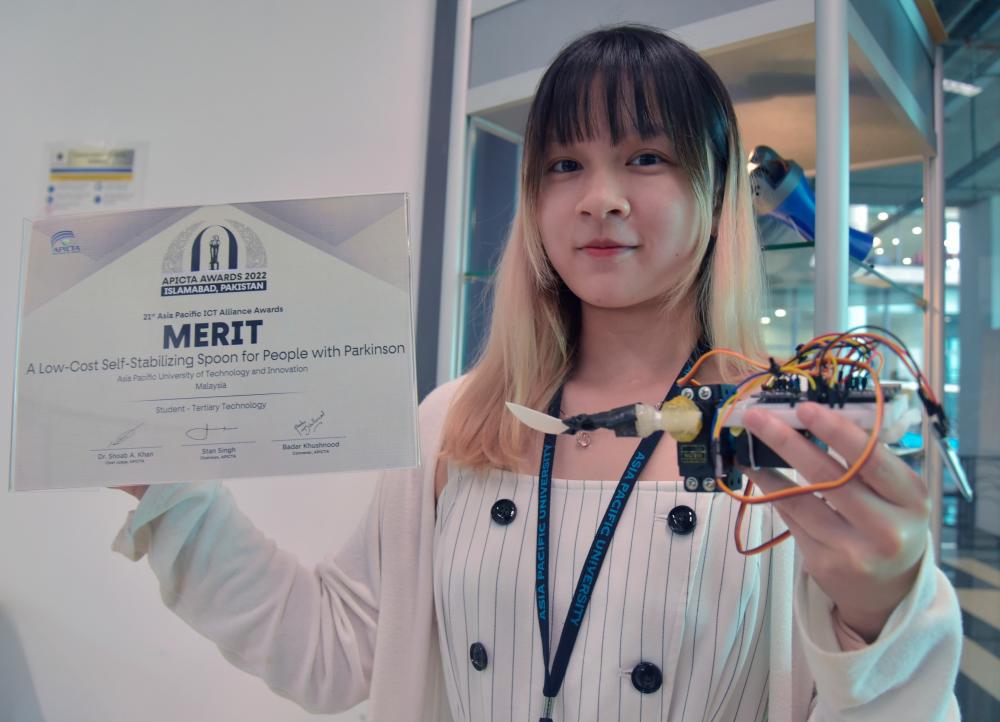KUALA LUMPUR: Two private university students earned international recognition at the 21st Asia Pacific ICT Alliance (Apicta) Awards 2022 in Pakistan recently, thanks to their innovative creation that makes cutlery very high-tech.
Asia Pacific University of Technology and Innovation Centre of Robotics Engineering students Wong Heng Ying, 22, and Ang Jia Ze, 23, of “Tremor X” team outshone 20 other teams from 16 countries, under the “Student-Tertiary Technology” category.
The Apicta Awards is an international accolade programme designed to stimulate information and communications technology (ICT) innovation and creativity to boost ICT awareness in the community and assist in bridging the digital divide.
Apicta members are Australia, Bangladesh, Brunei, China, Taiwan, Hong Kong, Indonesia, Japan, Macao, Malaysia, Myanmar, Pakistan, Singapore, Sri Lanka, Thailand and Vietnam.
The Tremor X duo represented Malaysia at the grand finals after they emerged winners in the Student-Tertiary Category at the national-level MSC Malaysia Apicta 2022 Awards.
They had pitched their creation of a low-cost electronic gadget that enables cutlery to self-stabilise when used by people who have hand tremors, particularly those suffering from Parkinson’s disease.
The students were mentored by APU School of Engineering senior lecturer Suresh Gobee and lecturer Vickneswari Durairajah.
Wong told theSun the idea for the project stemmed from their desire to make a social impact by addressing a problem faced by a small but often overlooked group that suffers from hand tremors.
“When we embarked on this project, we were not going after profit or popularity. It was simply our way of serving the community. So, for us, profit is secondary.”
Wong said their creation has four main features, which are an inertial measurement unit sensor that senses tremors and sends signals for necessary corrections, two motors that allow a handle to remain stable, a control unit that functions as the “brain” to control the motors and rotate them accordingly to counteract the tremors, and a Bluetooth module to send information to mobile phones via an application.
“For our next prototype, we plan to add features that are more user-friendly, such as rotatable motors that are more flexible, a Bluetooth module for an IoT (Internet of Things) module to allow healthcare workers to retrieve data efficiently, and a more ergonomic handle.
“The prototype can be attached to spoons, forks and other cutlery.”
Vickneswari said the university is looking for sponsorships from NGOs and corporate social responsibility programmes to fund the mass production of stabilisers and also to reduce their production costs, which would eventually translate to an affordable price.
“The production cost of a stabiliser is only RM400, which is 44% cheaper than other products in the market that cost RM900 each. The funds will cover the cost of research and development, manufacturing and marketing.”









